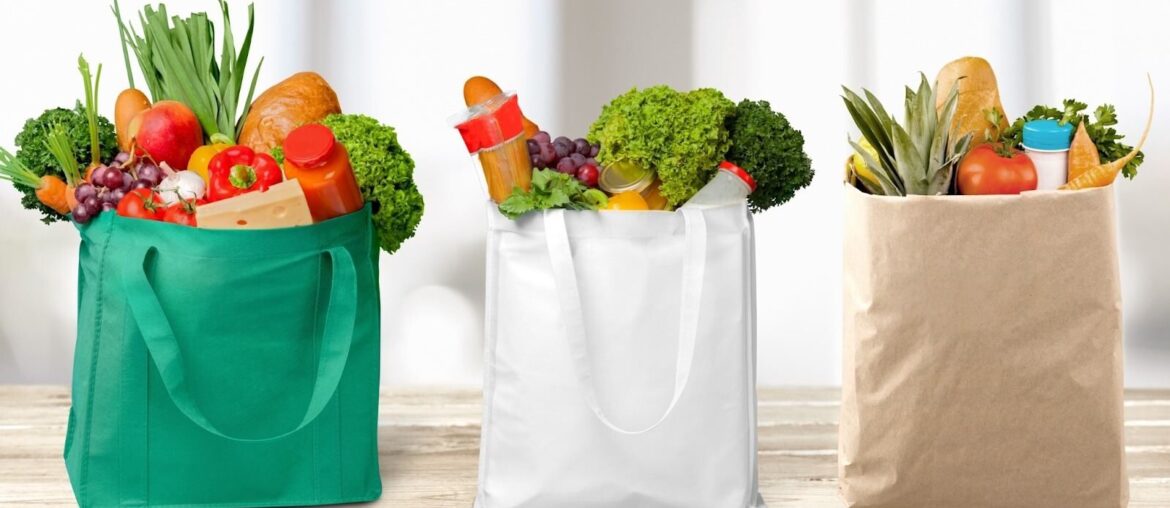In many countries, using alternatives to plastic bags is mandatory, and it should be. The average time a plastic bag is used is 12 minutes, but it takes 500-1000 years for a plastic bag to decompose. Apparently, a lot of people are willing to trade 1000 years of cleanliness for just 12 minutes of convenience. If nothing is done, there could be more plastic bags than fish in the world’s oceans by 2050. So, if you’re still using plastic bags for everyday shopping, it’s time to switch to these 5 alternatives.
Reusable Mesh Shopping Bags
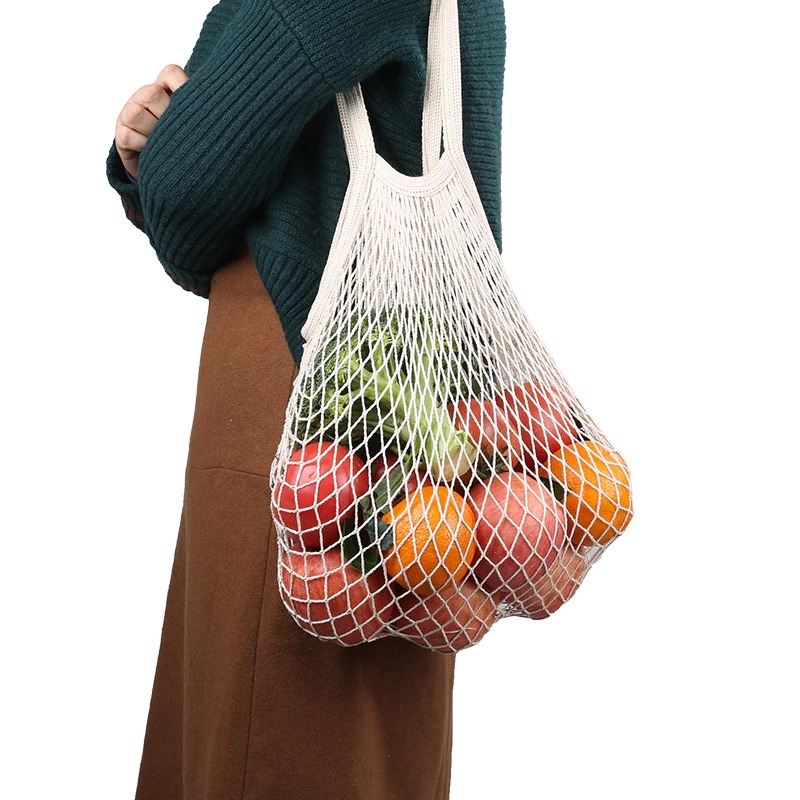
This is definitely a no-brainer choice. A lot of shoppers, housewives, or even famous food/cooking YouTubers are also using mesh shopping bags for their daily shopping. I mean, there is literally nothing to complain about mesh shopping bags. Whether in terms of capacity, compactness, or eco-friendliness, the mesh shopping bag has it all.
Mesh shopping bags are made from yarns or synthetic non-woven materials, therefore incredibly durable. Don’t underrate the capacity of this bag by its mesh-like design, it’s a lot more versatile than you think.
With a capacity of up to more than 20kg depending on the size, you don’t have to worry when shopping for large items. From fruits, and vegetables to flowers, bottles, books, etc., one mesh shopping bag can handle it all. A mesh bag can replace about 10 plastic bags per shopping. As you can reuse a mesh shopping bag about 150-200 times, imagine how many plastic bags can we save the Earth from?
Recycled Paper Bags
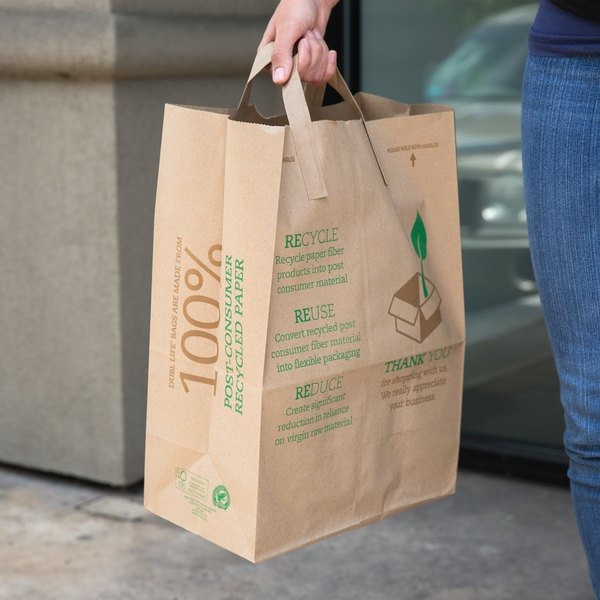
Another go-to choice of many consumers out there who follow a sustainable lifestyle. Using recycled paper bags has become the norm, or even the regulation in many countries.
The main reason that makes people highly appreciate paper bags is their reusability and compostability. Paper bags can be reused or recycled about 3.5 times before being completely thrown away, and they decompose incredibly quickly (only a few months). These traits make paper bags very eco-friendly, as they significantly reduce energy usage, carbon emissions, as well as the risks of habitat destruction.
However, we’re talking about recycled paper bags, not the new ones. Using too many new paper bags will lead to more trees being cut down for production. Wood is indeed a renewable resource, but that doesn’t mean we can keep exploiting it carelessly instead of finding ways to recycle or reuse what we already had.
In most countries, only paper bags that contain at least 35% of recycled material are accepted. Besides, only by using recycled paper bags instead of new ones can we reduce the negative impact of tree cutting or air/water pollution on the environment. Therefore, if you’re thinking about switching to paper bags, make sure that they are recycled ones and reuse them as much as possible.
Compostable Bags
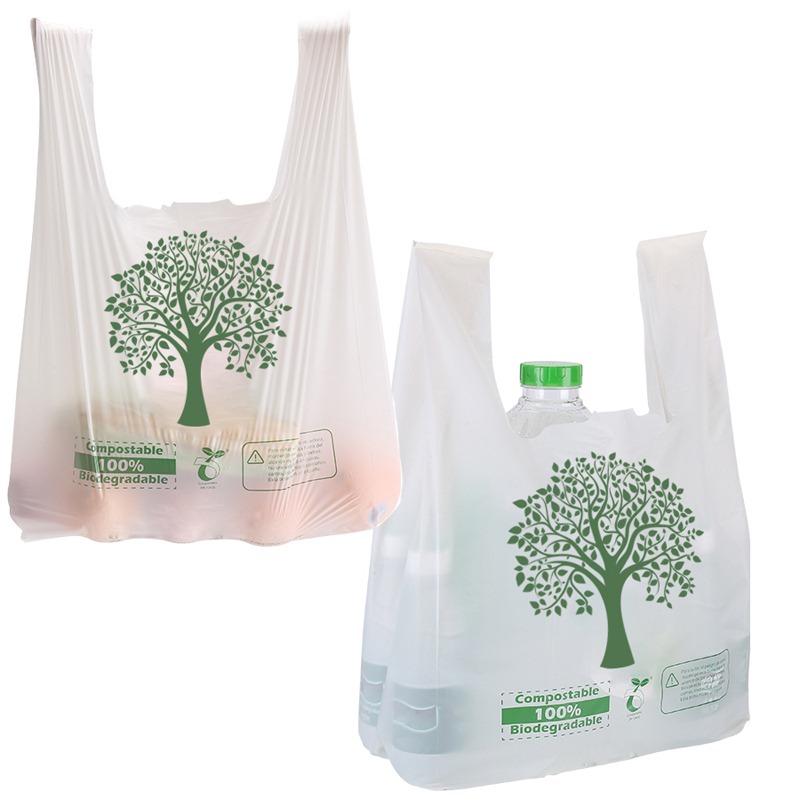
It’s difficult to distinguish between a regular plastic bag and a compostable bag in terms of appearance. You should ask for help from experts or staff before making any decision, if necessary.
Compostable bags are normally made from plants like corn, potatoes, or some other renewable raw materials. The strength of these bags comes from the use of materials. All the materials used to make these bags are compostable. They only take about 80 days to break down, helping to minimize the negative impact on the environment to the fullest.
However, using compostable bags can be a little bit tricky, as they require complicated storage conditions. You need to store them in cool, dry places if you want to keep the lifespan of the bags longer. Depending on the material and manufacturer, you can compost your compostable bags at home, or take them to composting facilities.
Polypropylene (PP) Bags
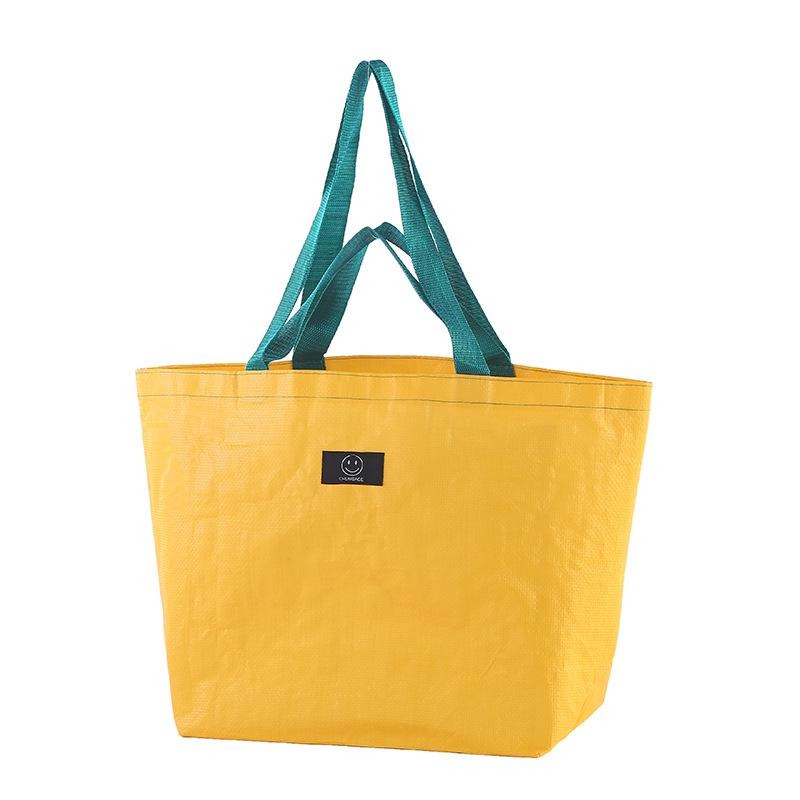
Polypropylene (PP) bags are also a perfect choice if you’re looking for something durable and versatile. They are made from polypropylene plastic, which – in case you didn’t know – is one of the main materials used to make plastic bags. Without proper disposal or recycling procedures, it can take 20-30 years for PP products to decompose.
There are different forms of polypropylene bags, mainly divided into two main types: woven and non-woven. Despite being slightly different, they all have one thing in common: they are recyclable. A typical PP bag can be reused for years before it needs to be recycled. By reusing and recycling PP products, we can minimize the amount of plastic produced or sent to landfills. This will help us reduce waste and conserve natural resources more efficiently.
PP bags are extremely strong and useful. You can use them to carry literally anything. Just make sure that you wash your PP bags often and properly to avoid cross-contamination.
Jute Bags
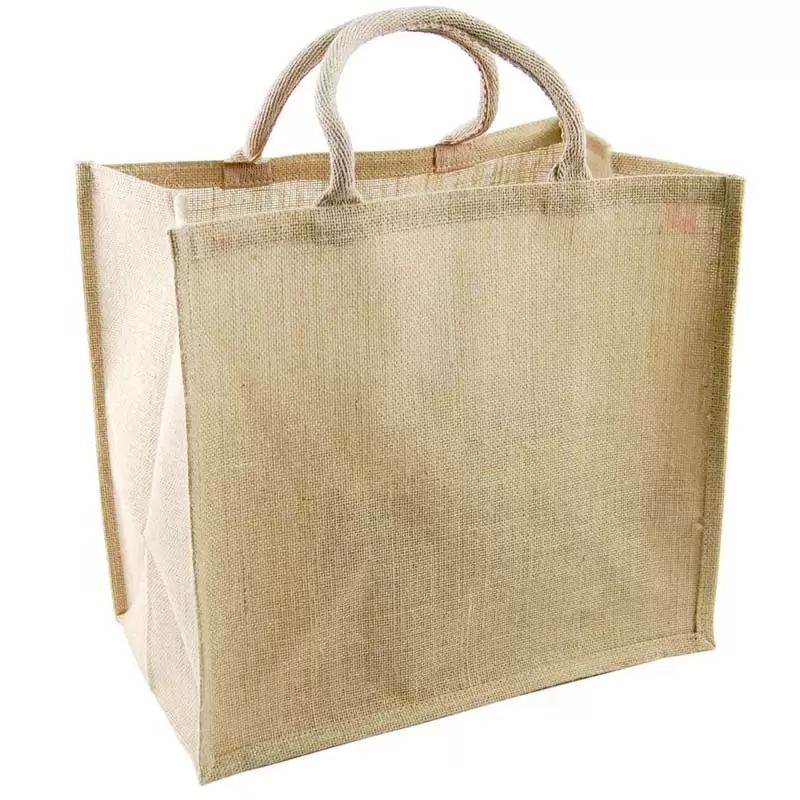
Vegetable fibers are becoming one of the typical materials in the development of eco-friendly products. As a result, jute bags are gradually becoming one of the alternatives to plastic bags – as well as many other alternatives – to become the top choice of environmental lovers.
Jute bags are made from biodegradable vegetable fibers, which are considered a naturally renewable resource. At the end of their lifespan, jute bags can be commercially composted for other purposes, or easily decomposed in nature into organic materials within 2 months.
Besides being eco-friendly, jute bags are also highly appreciated for their durability. Jute bags can be used for up to 2 years and are still biodegradable. Some jute bags also come with chemicals to prevent moisture, making them even more durable. However, such bags are often more difficult to compost, so we do not recommend them.
Bottom Line
Switching to other alternatives to plastic bags actually isn’t something new or groundbreaking. It isn’t simply a lifestyle, but an effective solution to reduce negative impacts on the environment. Refer to all the above alternatives now and switch to the ones that work best for you; this is for the sake of protecting our beloved planet. Shop your eco-friendly bags with Tenere now to get amazing discounts and contribute to planting trees around the world.

